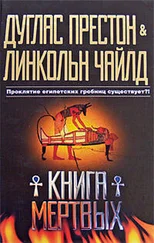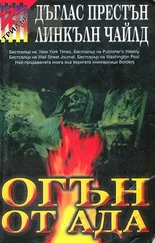And so he had left under a cloud and continued his lonely crusade online, railing against money, wealth, and privilege. He had been a voice in the wilderness — until he joined that demonstration, on a whim. And as he talked to folks, and marched, and talked some more, he realized he had finally found his people and his calling.
Only two days ago, while reading about the Decapitator killings in the New York Post , he had an idea. He would organize a bonfire. A symbolic bonfire, like the one put on by the monk Savonarola in the central square of Florence on February 7, 1497. On that date, thousands of Florentine citizens had answered Savonarola’s call to bring into the great piazza items of vanity and greed, pile them up, and burn them in a symbolic cleansing of their souls. And the citizenry had responded with enormous enthusiasm, flinging on cosmetics, mirrors, obscene books, playing cards, rich clothes, frivolous paintings, and other manifestations of worldly greed, then setting them alight in a gigantic “bonfire of the vanities.”
And then, as if on cue, he had heard about the demonstration on social media, joined it, and it had crystallized all his previous thoughts and ideas around that one idea: a twenty-first-century bonfire of the vanities. And what better place to do it than New York City, the Florence of the modern world, the city of billionaires and bums, the richest and the poorest, the midnight playground of the rich and the midnight pit of despair of the poor.
And so the ex-Jesuit, Marsden Swope, had put out a modest appeal on social media to everyone out there fed up with the materialism, narcissism, greed, selfishness, inequality, and spiritual emptiness of our modern society. He had invited them to attend this new bonfire of the vanities, to take place somewhere in New York City. So as to confuse and confound the authorities, the actual place and date of the bonfire, he wrote, would be kept secret until the very last minute. But it would take place in a public arena, a very public area, and it would happen so quickly the authorities would not have time to stop it. His readers, followers , should prepare themselves and await his instructions.
The idea, Swope wrote, came from the brutal killings of the Decapitator. Here was a person who pretended to recognize the evil in our modern world. If you believed in Satan (and there was much evidence to support that belief), you understood that the Decapitator was actually Satan’s servant. He was capitalizing on the predatory evil of the one percenters and their corporate henchmen to spread more evil. The Decapitator had set himself up in judgment as God himself, the ultimate blasphemy. He was an agent that would deflect the faithful from their real duty, which was to ask forgiveness, seek to purify themselves, to take the beam out of their own eye before trying to remove the mote from their brother’s. Those other protestors, the ones calling for the destruction of the rich, were as much Satan’s servants as the rich themselves. No, you don’t destroy the rich — you do as Jesus did, and convert them.
To that end, Swope was offering a bonfire of expiation. He asked everyone who wished to attend to bring something symbolic to be burned, something that represented to them the evil they wished to expunge in themselves. It should be an emblem of the purification each wished to undergo, the atonement they hoped to achieve, the penance they wanted to earn.
His modest postings had hit a nerve. At first, there was almost no response. And then there were a few retweets and a scattering of Facebook shares. Suddenly, like a rocket, it took off. Boy, oh boy, had the message gone viral. For eighteen hours straight, his computer had been pinging nonstop with posts and likes and responses to his appeal: hundreds of thousands. People were captivated. They yearned to purify themselves, to shed the dreck of materialism and greed. Thousands and thousands had posted pictures of the things they’d chosen for his bonfire of the vanities. It was astonishing, truly, how people in the tristate area had responded. They were all awaiting his announcement of where and when .
The last Chicken McNugget disappeared into his mouth and he chewed slowly and thoughtfully, barely tasting it. He drained the chocolate milk jug. His bodily needs taken care of, he cleared his table, dumped the refuse, and headed out the door and into the bitter December cold, back down 125th Street to his basement studio and his ancient PC.
There, he would continue rallying the city to his cause.
Dr. Wansie Adeyemi was a most impressive-looking woman when she arrived at the United Nations to deliver a 10 AM speech to the General Assembly, Charles Attiah thought. He had been called in for a time-and-a-half shift for the UN Department of Safety and Security, where he was posted in the soaring lobby of the General Assembly building. He joined eighty other DSS guards whose job was to manage the dignitaries and delegations arriving for the speech, along with crowds surging to see Dr. Adeyemi, who had won the Nobel Peace Prize earlier that year. Attiah was especially anxious to see her and had in fact requested this overtime detail, due to the fact that he was of Nigerian descent — and was proud of Adeyemi, now Nigeria’s ambassador and most famous citizen, and wanted to hear her speech to the UN.
Adeyemi had arrived about an hour before, with a large entourage and her own security detail, dressed in spectacular Nigerian kitenge dress, printed in a stunning black-and-white geometric pattern with bright-colored borders, and wearing a shimmering orange silk scarf wound around her head. She was tall, stately, dignified, and remarkably young given all her achievements, and Attiah was thrilled by her charisma.
Thousands had come to greet her as she passed through the lobby to cheering and the tossing of yellow roses, her signature flower. It was a shame, Attiah thought, that Dr. Adeyemi, a prominent Christian, had been forced to travel with such a large group of armed security guards, due to a fatwa, death threats, and even an assassination attempt.
Attiah had helped keep the respectful crowd in check behind velvet ropes as Dr. Adeyemi had passed through. She had been inside the hall now for an hour, giving a speech on HIV/AIDS and pleading for more funding from world governments for the string of HIV clinics she had established across West Africa. He couldn’t see her, but the speech was being broadcast live into the lobby for the general public to listen. Adeyemi spoke eloquently in English about the work of her clinics and the remarkable decline in new HIV infections due to her organization’s efforts. Thousands of lives had been spared because of her clinics, which provided not just lifesaving drugs but also educational programs. All this, however, had made her a target of Boko Haram, who claimed that her clinics were a Western plot to sterilize Muslim women, and who had bombed several of them.
The General Assembly loved the speech, interrupting many times to applaud. Here was something purely good, Attiah thought; something every nation could agree on.
Attiah could hear the speech winding up. Now Dr. Adeyemi’s vibrant voice was reaching a crescendo of expression, calling on the world to pledge to eradicate HIV/AIDS as it had smallpox. It was possible. It would take money, dedication, and education on the part of the governments of the world — but it was within reach.
More cheering, and she concluded to a rousing standing ovation. Attiah braced himself for the surge about to enter the lobby. Soon the doors opened and the foreign delegations, dignitaries, press, and guests streamed out, followed by Adeyemi and her entourage of Nigerian politicians, doctors, and social workers. The group was surrounded by her security contingent. What a world this was, Attiah thought, that even a saint such as her had enemies. But that was the way it was, and the security around her was tight as a drum, even on top of the United Nations’ highly trained DSS.
Читать дальше










![Линкольн Чайлд - Стихи для мертвецов [litres]](/books/396536/linkoln-chajld-stihi-dlya-mertvecov-litres-thumb.webp)

